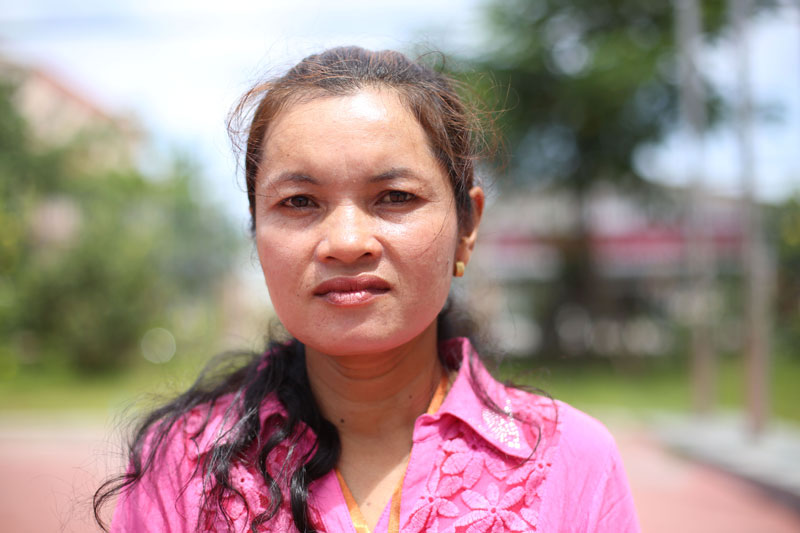Not long ago, the forest was a sanctuary for Tum Leung, a 48-year-old ethnic Banong villager from Mondulkiri Province’s Keo Seima district.
But with economic land concessions now overlapping with her community’s ancestral woodlands, and workers being brought in to clear the forests that her family has long depended on, she won’t let her 18-year-old daughter enter the woods alone anymore.

“We learned that there was a minority woman who was raped and killed in other provinces by laborers working for economic land concession companies,” Ms. Leung said Friday at a conference on the plight of minority women in the country.
“I have banned my daughter who is now 18 years old from going into the forest to collect products,” she said.
“I used to go into the forest alone and so did my daughter,” Ms. Leung added. “It is not safe for us since our territory has been invaded by loggers and migrant workers employed by economic land concession companies.”
As the trees fall around them to make way for industrial agriculture projects, the Banong minority is facing rapid change to their way of life, she said.
“The identity of indigenous minority people in my community is at high risk after we have lost rotational farmland and spiritual forest in the past few years.”
The three-day conference at the Cambodia-Korea Cooperation Center this week brought indigenous people from seven different provinces together to talk about how economic land concessions, hydroelectric dams and rapid deforestation have threatened women in these communities.
Fear of rape with an influx of mostly male laborers into the forests and loss of indigenous traditions and spirit forests are some of the biggest problems these women face.
At the conference, the women compiled a petition calling on the government to stop all new investment in economic land concessions because indigenous communities are rapidly losing access to necessary resources, such as water and food.
The seven indigenous groups presented their problems to representatives from The Ministry of Rural Development, Ministry of Environment, Ministry of Land Management and the Ministry of Mines and Energy.
At the conference, Ou Vuddy, general director of the Ministry of Land Management, said the ministry is trying to move forward in registering communal lands for indigenous communities.
But the government’s efforts to protect communal land for minority communities have been slow moving. There are only eight communal land titles, two in Ratanakkiri province and six in Mondulkiri province, said Ngach Samin, project coordinator for Indigenous People Human Rights Defender and Advocacy.
Truonh Loek, a 24-year-old ethnic Kreung villager from Ratanakkiri province’s O’chum district also feels threatened by the agro-industry concessions now surrounding her.
In 2011, a 17-year-old Kreung minority girl was raped and killed at her small cottage on farmland surrounded by many economic land concession companies, Ms. Loek said. The perpetrators were never apprehended, she added.
“The companies have employed many workers from other provinces and we are afraid of getting raped if we go to our farmland located close to the economic concession zones,” she said.



